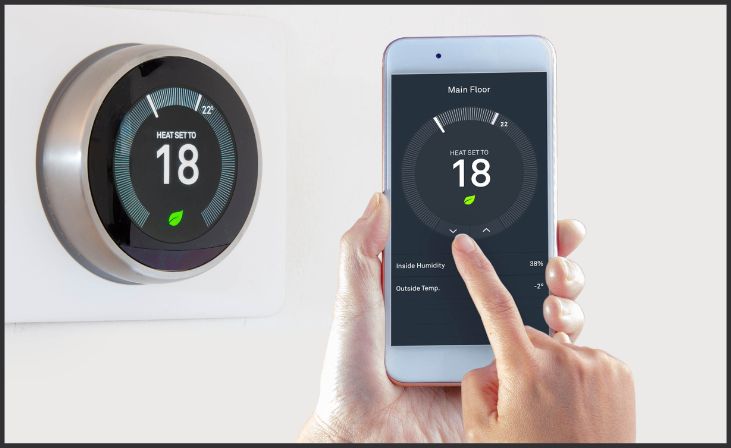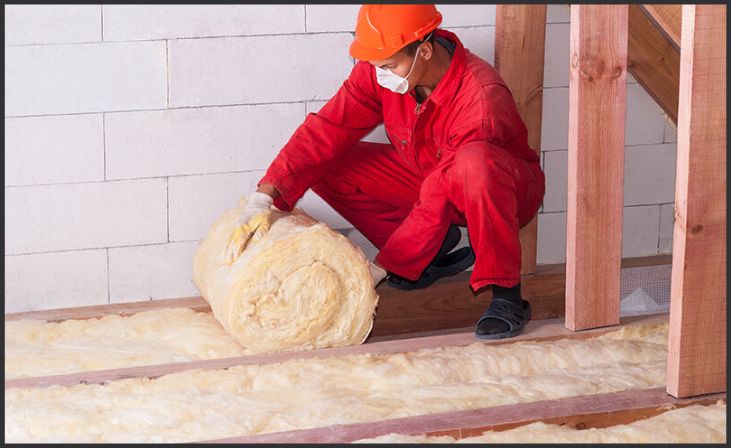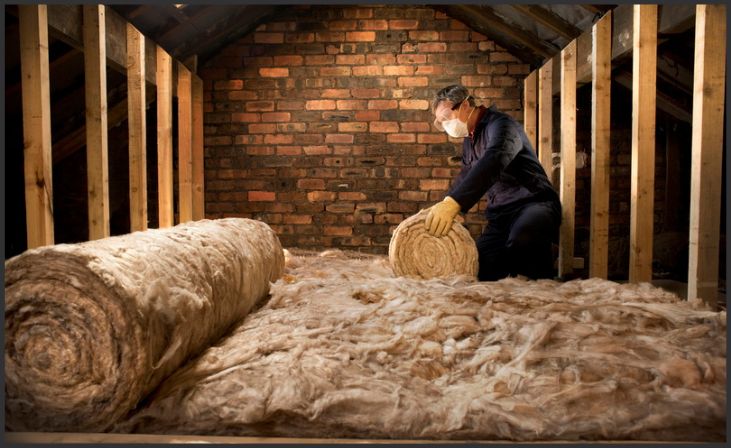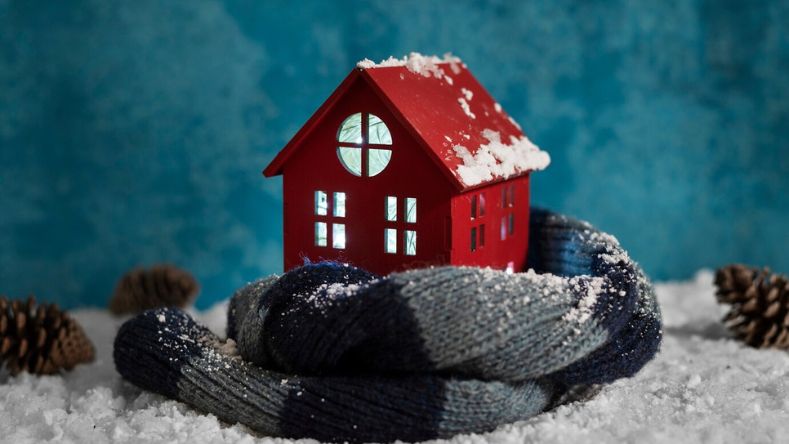How To Save Energy Bill In Winter – Welcome to a comprehensive guide on how to save on your energy bill during the chilly winter months. When the temperatures plummet, and frost settles in, it becomes essential to find that delicate equilibrium between staying comfortably warm and ensuring your energy expenses remain in check.
In this article, we’ll embark on a journey to explore a myriad of strategies and ingenious hacks, all aimed at helping you achieve precisely that balance. So, without further ado, let’s delve deep into the intricacies of maintaining a cost-effective and energy-efficient winter.
Why Does Winter Lead To Increased Energy Consumption?
Before knowing How To Save Energy Bill In Winter, you should also learn about energy consumption in winter. Winter is a season synonymous with plummeting temperatures and longer nights. As a result, various factors contribute to higher energy consumption:
Heating Systems:

The most obvious contributor is the need to keep your living spaces warm. Heating systems, whether powered by electricity, natural gas, or oil, work overtime to maintain a comfortable temperature indoors.
Shorter Days:
With the sun setting early, you rely more on artificial lighting. Longer nights mean more electricity is used for lighting your home.
Also Read:- How To Make Sustainable Food Choices
Appliance Usage:
Winter often sees increased use of appliances like space heaters, electric blankets, and heated water for showers, all of which draw on your energy supply.
Sealing Doors and Windows:
Drafts and leaks in your home become more pronounced during cold weather, causing heating systems to work harder to compensate.
Holiday Decorations:
Festive holiday lights and decorations can add a significant load to your energy consumption.
Understanding these factors is the first step in taking control of your energy expenditure during winter. By recognizing where the energy is going, you can implement strategies to reduce consumption effectively.
How to Save Energy Bill in Winter?
Now, let’s explore a range of practical strategies that can significantly reduce your energy costs during the winter months. These methods not only help you save money but also contribute to a sustainable and eco-friendly lifestyle.
Lower Your Thermostat

One of the simplest yet most effective ways to reduce energy costs during winter is by carefully managing your thermostat. When you’re not at home or when you’re asleep, consider lowering your thermostat by a few degrees.
This seemingly small adjustment can result in substantial savings over time. Each degree lower on your thermostat can make a noticeable difference in your energy bill. Plus, it’s a greener choice, as you consume less energy to maintain a comfortable indoor temperature.
Use Programmable Thermostats
Investing in a programmable thermostat is a smart decision for achieving a more energy-efficient winter. These intelligent devices allow you to automate temperature adjustments according to your schedule.
They ensure your home is warm and cozy when you need it and conserve energy when you don’t. You can set different temperature profiles for different times of the day, such as lowering the temperature when you leave for work and increasing it before you return. This not only makes you feel better, but it also uses less energy. It was yet another great way to lower your winter energy bills.
Also Read:- Modern Sustainable Home Design
Seal Drafts and Leaks
One of the most significant culprits of heat loss during winter is drafts and leaks in your home. It’s crucial to inspect your windows, doors, and other openings for gaps and use weatherstripping and caulk to seal them.
The simple act of sealing these gaps can make a substantial difference in your energy bill. It’s like preventing the warmth you’re paying for from escaping into the cold outdoors. This not only saves you money but also reduces the strain on your heating system, extending its lifespan.
Optimize Sunlight
The sun is a natural source of heat, and you can use it to your advantage during the winter. Get some natural light in by opening your curtains during the day. By taking this simple step, you let your home soak up natural warmth, which means you won’t need to heat it as much.
When evening descends and the temperature drops, remember to close your curtains to trap the warmth inside. This practice can make a noticeable difference in your indoor comfort and energy expenses. Keep scrolling through to learn more about How To Save Energy Bill In Winter.
Dress Warm
While heating systems are essential during winter, consider supplementing them with personal warmth. Dressing warmly with layered clothing and snuggling under cozy blankets can significantly reduce your reliance on heating appliances.
By staying comfortably warm through clothing and blankets, you can lower the demand on your heating system, leading to lower energy consumption and, consequently, a reduced energy bill. Plus, it’s a cozy and cost-effective way to enjoy the winter season.
Cook Efficiently
Even your cooking habits can have an impact on your energy bill. Efficient cooking practices can lead to substantial energy savings. For instance, use lids on pots and pans to retain heat, which allows you to cook food faster and use less energy.
Additionally, consider using the right-sized cookware for your stovetop burners to avoid heat loss around the sides. When using your oven, prepare multiple dishes at once to make the most of the preheated space. These simple cooking adjustments not only save energy but also optimize your time and resources.
Home Insulation: Maintaining Consistent Comfort
After knowing how to save energy bill in winter, you should also get to know everything about home insulation, as it will also help you to save energy bills. Proper insulation in your home is not just a luxury; it’s a necessity, especially during the winter months. The right insulation can significantly impact your energy bills and overall comfort by maintaining a consistent indoor temperature and reducing the workload on your heating system.
The Role of Insulation

Insulation acts as a barrier between the outdoor elements and your indoor living spaces. It resists the flow of heat, helping to keep the warmth inside during the winter and the heat outside during the summer. Proper insulation ensures that your home remains thermally efficient, creating a comfortable and consistent environment.
Benefits of Proper Insulation
Proper insulation offers a range of benefits:
Energy Savings:
Insulated homes are more energy-efficient. They require less heating to maintain a comfortable temperature, resulting in lower energy bills. In the long run, the savings can add up to a lot.
Enhanced Comfort:
Insulation helps eliminate cold spots and temperature variations within your home. You’ll enjoy a more comfortable living environment with fewer drafts and chilly corners.
Reduced Environmental Impact:
Using less energy not only benefits your budget but also reduces your carbon footprint. Energy-efficient homes have a smaller environmental impact, contributing to a more sustainable future.
Also Read:- Energy-Efficient Homes
Protection from Extreme Weather:

Good insulation can also protect your home from extreme weather conditions. It protects against cold winters and scorching summers, keeping your home cozy and resilient.
Conclusion
In conclusion, the pursuit of saving on your energy bill during the winter season is not just a lofty aspiration; it’s a practical and entirely achievable goal. As we journeyed through this comprehensive guide, you’ve learned valuable strategies and insights to transform your winter into a harmonious blend of warmth, comfort, and financial prudence.
By implementing the strategies thoughtfully outlined in this article, you possess the keys to keep your home snug and cozy without the looming fear of breaking the bank. These strategies aren’t merely theoretical; they’re tried and tested methods that have empowered countless individuals to reclaim control over their energy expenses. We hope our blog has cleared all your doubts regarding How To Save Energy Bill In Winter.
FAQs
A: The recommended indoor temperature is around 68°F (20°C) when you’re at home. You can lower it when you’re asleep or away to save energy.
A: Not necessarily. Simple fixes like weatherstripping and sealing gaps can make a big difference.
